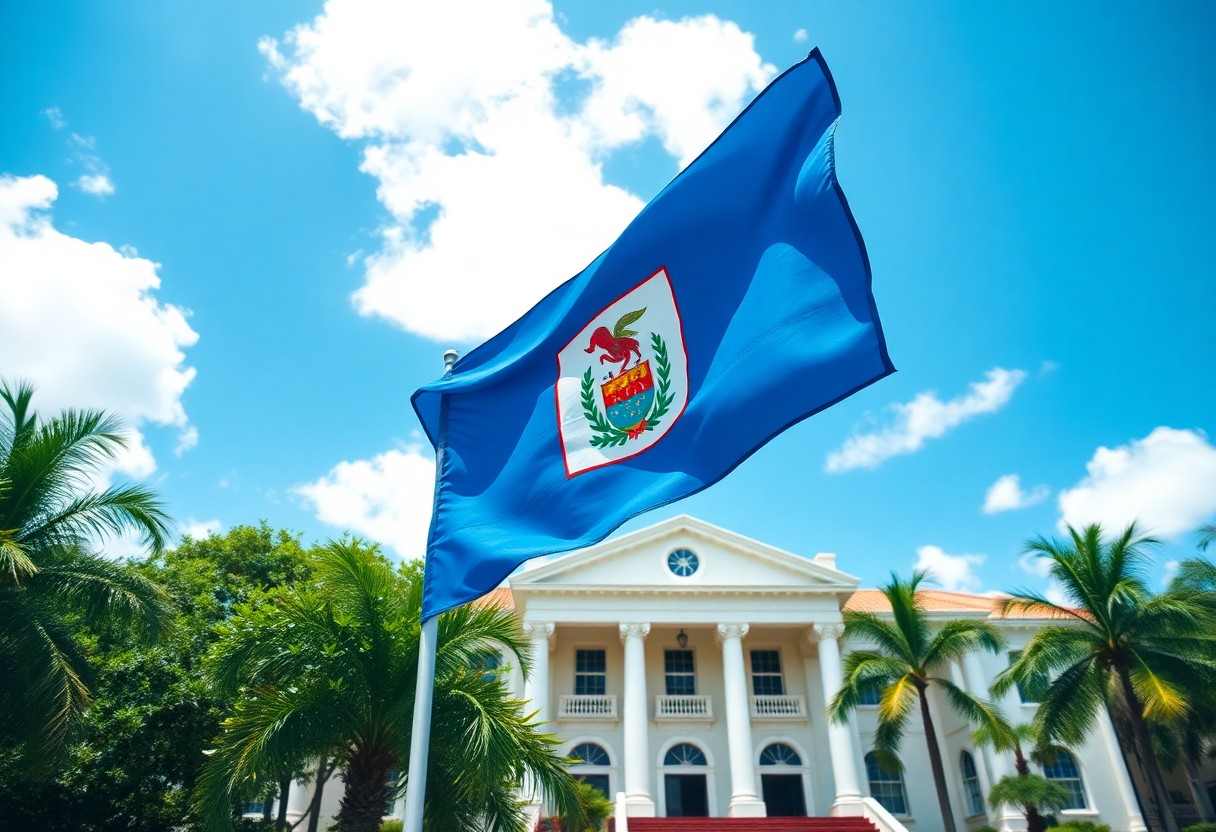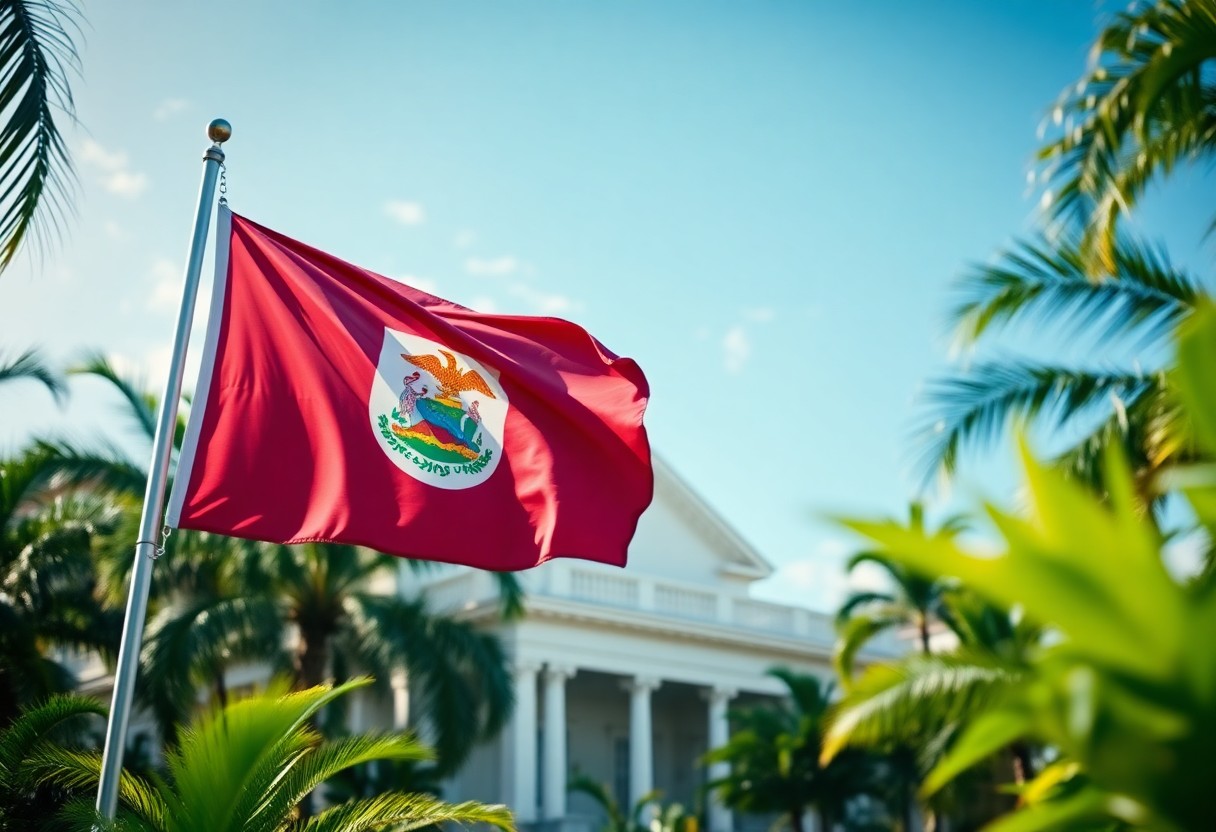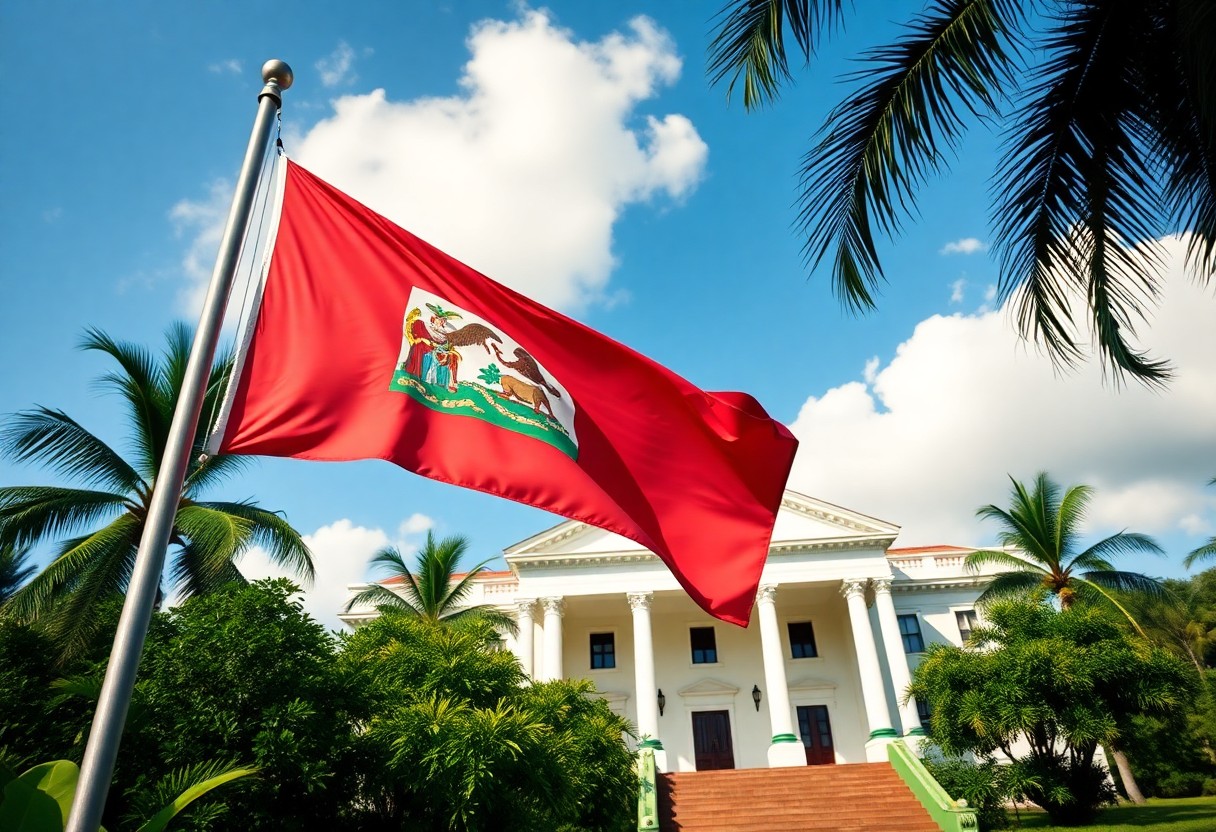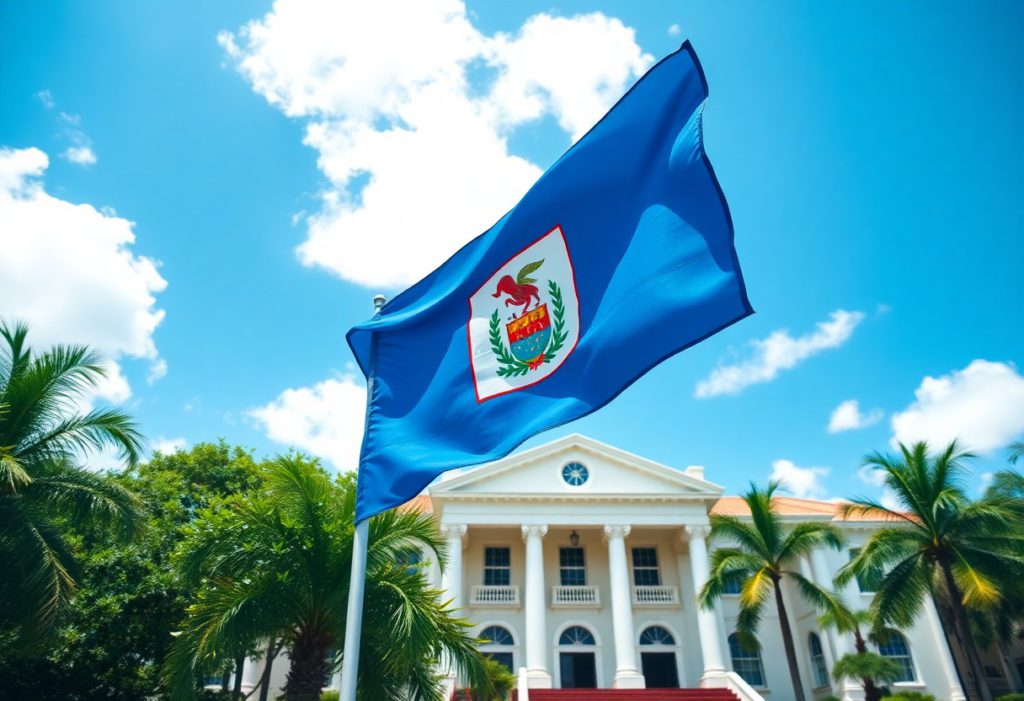Delving into Belize's Journey Towards Independence is essential for understanding the core of Belizean identity and its historical narrative. This article will explore the key historical milestones that shaped the nation's evolution into an independent state. It will shed light on the persistent battles against colonial rule, critical treaties that were enacted, and the momentous achievement of self-governance in 1981. These historical occurrences not only highlight the tenacity and resolve of the Belizean populace but also reveal the significant transformations that facilitated the establishment of a democratic Belize. Join us in examining the vital milestones that contribute to the contemporary Belizean national identity.

Unraveling the Vibrant Pre-Colonial History of Belize
Prior to European colonisation, the pre-colonial period in Belize was marked by a rich array of indigenous cultures and deep-rooted histories. Various indigenous groups thrived in this area, with the Maya civilisation emerging as the most influential. These societies crafted complex social hierarchies, employed advanced agricultural practices, and established extensive trade networks that were exceptional for their era. The cultural heritage from this period serves as a cornerstone of Belize’s identity, shaping the path of subsequent historical developments in the region and influencing the modern Belizean way of life.
Discovering the Remarkable Achievements of Maya Civilisations
A thorough exploration of pre-colonial Belize must feature the impressive accomplishments of the Maya civilisations. These ancient societies did not merely survive; they excelled in various realms including architecture, astronomy, and agriculture. Today, both visitors and locals can witness awe-inspiring ruins such as Caracol and Lamanai, which stand as enduring symbols of the Maya's sophisticated lifestyle and profound understanding of urban planning and natural sciences. These archaeological sites serve as a testament to the ingenuity and resilience of the Maya, offering insights into their daily lives and cultural practices.
Exploring Belize’s Multifaceted Cultural Heritage
At the heart of Belize’s national identity lies a rich and intricate cultural heritage. This diverse tapestry is woven from the intricate interactions between indigenous, African, and European influences that have collectively shaped contemporary Belizean society. The vibrancy of this heritage is vividly expressed through the multitude of languages, traditions, and customs that enrich the daily lives of Belizeans, contributing to a unique cultural landscape that is cherished and celebrated by its citizens.
Moreover, this heritage plays a pivotal role in shaping Belize's cultural identity. The architectural wonders of the Maya, alongside their agricultural innovations, continue to resonate within modern society. Additionally, it is noteworthy how the contributions from African and Creole communities have profoundly enriched Belize’s artistic expressions, musical traditions, and culinary arts. This fascinating cultural amalgamation fosters a strong sense of community and pride among Belizeans, while also serving as a reminder of the historical challenges faced by these diverse groups throughout Belize's narrative.
Examining the Era of British Honduras and Its Influence
The time when Belize was referred to as British Honduras represents a significant chapter marked by British colonial authority. Spanning from the 18th century into the mid-20th century, this period witnessed the emergence of a unique cultural identity heavily influenced by British governance, economic interests, and local resistance efforts. During this era, crucial transformations occurred within political and administrative systems, ultimately laying the groundwork for Belize’s unyielding quest for independence.
A Comprehensive Timeline of British Colonial Rule in Belize
Following its official designation as a British colony in 1862, British Honduras experienced significant developments, including the introduction of the British legal system and the establishment of essential infrastructure. Throughout this time, the colony faced mounting resistance from the local populace, notably highlighted during the 1934 labour riots, which played a critical role in galvanising support for self-governance among the Belizean people and igniting a spirit of nationalism that would shape the future of the nation.
The Enduring Influence of British Colonialism on Belizean Society
Above all, the legacy of British colonial rule has left an indelible mark on Belizean society and governance frameworks. The introduction of the English language, alongside legal systems and educational structures, played a significant role in modernising the nation. While this relationship presented considerable challenges, it also laid essential foundations for the democratic governance that Belize enjoys today.
Furthermore, the impact of British colonialism is evident in numerous facets of modern Belizean society. The English language remains the official means of communication, facilitating interactions both locally and on the international stage. Additionally, the legal and governance frameworks established during this colonial period have significantly influenced Belize's current legal system. However, it is crucial to acknowledge that this influence also involved the exploitation of resources and cultural imposition, which have lasting repercussions on Belizean demographics and national identity. Understanding these multifaceted dynamics is essential to comprehending Belize’s intricate journey toward independence.

Navigating the Crucial Path to Belize’s Independence
Any discussion surrounding Belize’s journey towards independence must duly recognise the significant events that paved the way for this historic change. The road to freedom involved responding to colonial pressures, nurturing a growing sense of nationalism, and advocating for enhanced self-determination among the Belizean populace. The mid-20th century marked a notable increase in political activism, which diligently laid the groundwork for Belize’s eventual liberation from British colonial rule.
Highlighting the Prominent Figures in Belize’s Independence Movement
Key historical milestones along Belize’s path to independence featured influential leaders such as George Cadle Price. Recognising their leadership and vision allows us to appreciate how these figures galvanised public support for self-governance, significantly shaping the future and identity of the nation. Their relentless efforts inspired a generation of Belizeans to seek autonomy and empowerment in political representation.
Participating in Negotiations for Self-Governance
During the critical negotiations for self-governance, representatives of the Belizean people played a pivotal role, proposing transformative strategies that would redefine the course of their history.
With a proactive and determined stance, Belizean leaders actively engaged in discussions with British representatives regarding self-governance. These negotiations proved to be a crucial turning point, as Belize sought to assert its autonomy in managing its own affairs. The formation of political parties and organised movements played an essential role in articulating the demands for change from the Belizean populace. As tensions escalated, these negotiations became increasingly intense, reflecting the urgent desire for autonomy felt by Belizeans. This critical period culminated in several constitutional amendments, setting the stage for Belize’s eventual independence from colonial control.
Recognising Significant Milestones on the Road to Independence
A multitude of significant milestones characterised Belize’s challenging journey to independence. From early legislative actions to transformative events, each moment played an essential role in the quest for self-determination. As you explore these milestones, you will come to understand their profound impact on the national identity and the enduring struggle for sovereignty that continues to shape Belizean society.
Key Legislative Advancements Leading to Self-Governance
One of the pivotal early legislative advancements was the introduction of the Internal Security Act in 1961. This act established a framework for self-governance, allowing a limited degree of autonomy in local governance matters. This crucial legislation represented a watershed moment, encouraging Belizeans to actively engage in political processes and advocate for further reforms that would lead to greater independence.
Defining Events from 1964 to 1981 that Shaped Belize’s Political Landscape
In the years leading up to Belize’s independence, significant occurrences from 1964 to 1981 played a vital role in sculpting the nation’s political landscape. These events included the rise of influential political leaders and nationalist movements, which laid the foundation for achieving self-governance.
During this transformative epoch, numerous key events unfolded that contributed to Belize’s independence. The 1964 Elections heralded a new era of political engagement by broadening voting rights to a more extensive segment of the Belizean populace. The 1969 Belize-Guatemala tensions further escalated calls for unity and autonomy among citizens. The 1973 Constitution established a more robust governance framework, granting additional rights and liberties to the populace. Ultimately, these developments, combined with the declaration of independence in 1981, defined Belize’s trajectory toward solidifying a national identity and self-rule.

Challenges and Progress in Post-Independence Belize
In the years following its independence in 1981, Belize faced a range of challenges and opportunities as it sought to cultivate a cohesive national identity and effective governance. The nation undertook substantial efforts to create a stable political framework while promoting economic growth and addressing pressing social issues. Initiatives were directed towards enhancing infrastructure, education, and healthcare systems, all aimed at improving the quality of life for every Belizean in this young and developing democracy.
Understanding the Political Framework of Belize
The political framework is crucial in determining the governance of Belize. The country operates as a parliamentary democracy with a distinct separation of powers among the executive, legislative, and judicial branches. The Prime Minister leads the government, while the legislative body is comprised of the House of Representatives and the Senate. This political system encourages regular elections and the representation of diverse political views, fostering active civic engagement among the populace.
The Significance of Commonwealth Membership for Belize
Upon achieving independence, Belize became a member of the Commonwealth of Nations, an affiliation that has been instrumental in enhancing international relationships and support. This membership provides Belize access to a network of countries that share similar democratic values, facilitating participation in collaborative initiatives across sectors such as education and trade.
A notable advantage of your Commonwealth membership is the opportunity to engage in discussions regarding regional issues impacting Belize. Participation in this organisation elevates Belize’s global standing while also strengthening ties with other former British colonies. Furthermore, you will find that Commonwealth nations frequently provide developmental assistance, which can be crucial in addressing local challenges. However, this membership also requires a commitment to uphold democratic principles and human rights, ensuring that Belize continues to evolve as a respected member of the international community.
Confronting the Modern Challenges Facing Belize
It is imperative to acknowledge that Belize is currently facing a variety of contemporary challenges that significantly affect its stability and growth. These issues encompass economic concerns, social dynamics, governance, and environmental factors that collectively shape the nation’s future trajectory. Addressing these pressing challenges is essential for sustainable progress, as they directly influence the daily lives of Belizeans and the overall development of the country.
Investigating Economic Challenges in Contemporary Belize
Current economic challenges in Belize include elevated unemployment rates and an over-reliance on tourism as a primary economic driver. These factors contribute to economic instability and have a direct impact on the livelihoods of local businesses. Fluctuations in global tourism trends can profoundly affect Belize’s economy, placing additional strain on government resources and public services.
Tackling Social Issues in Belizean Society
In Belize, social challenges such as poverty and inequality remain significant obstacles. Issues like limited access to education and healthcare services contribute to disparities among different communities, negatively impacting the overall quality of life for many Belizeans.
Moreover, it is critical to recognise that social issues in Belize are intricately linked to prevailing economic conditions. The high rates of poverty directly influence access to essential services, while inequalities in education can hinder future opportunities for numerous individuals. Nevertheless, community initiatives and government programmes are actively addressing these concerns, fostering a sense of hope and resilience among the population. By strengthening social ties and investing in education and healthcare, Belize can progress towards achieving a more equitable society for all its citizens.
Examining Belize’s Historical Journey to Independence
Reflecting on Belize’s historical journey to independence offers an opportunity to appreciate the significance of key milestones that have shaped the nation. The ramifications of the 1964 and 1973 constitutional changes laid the groundwork for self-governance. The importance of the 1975 Treaty of Friendship with Guatemala in addressing long-standing territorial disputes cannot be overlooked. Ultimately, the official independence achieved on September 21, 1981, marked a transformative chapter in Belize’s history, enabling every Belizean to celebrate a sense of national identity and sovereignty. Each of these milestones has played a crucial role in moulding Belize into the nation it proudly represents today.
Addressing Common Queries Regarding Belize’s Path to Independence
What Major Historical Events Contributed to Belize Gaining Independence?
Belize's journey to independence was characterised by a series of pivotal events. The movement for independence gained momentum during the 1940s, culminating in 1981 when Belize officially severed ties with British colonial rule. Key milestones during this period included the establishment of a constitutional government in 1964 and the organisation of self-governing elections.
Who Were the Key Figures in Belize’s Independence Movement?
A number of influential figures played critical roles in the independence movement. George Price, the leader of the People’s United Party, was central to advocating for Belize's autonomy. Other notable individuals included Philip Goldson and various members of political organisations that actively campaigned for self-determination.
What Was the British Government's Reaction to Belize’s Independence Movement?
The British government initially exhibited resistance to independence but ultimately acknowledged Belize’s readiness for self-rule. This shift occurred as they recognised the growing political consciousness and activism among Belizeans. British officials collaborated with local leaders to ensure a smooth transition toward independence.
The Article How Belize Gained Independence: Key Historical Milestones appeared first on Belize Travel Guide
The Article Belize Independence: Key Historical Milestones Explained Was Found On https://limitsofstrategy.com


